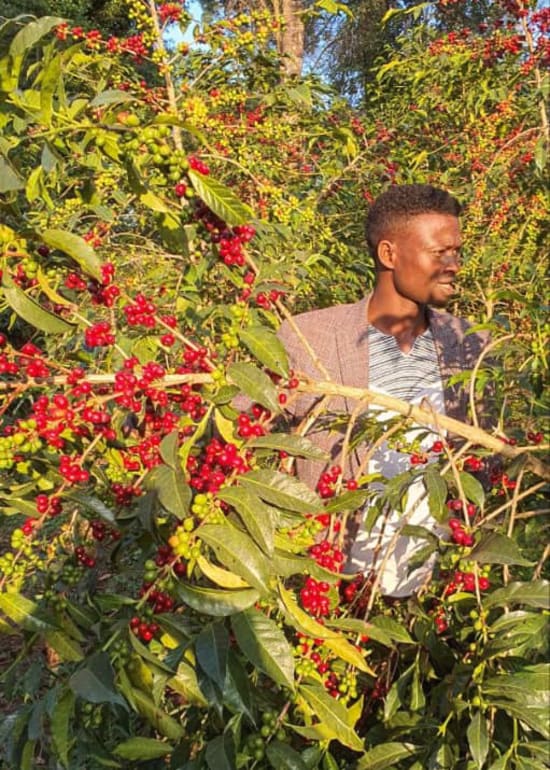Eminent Coffee Roasters
Ethiopia/Kayon Mountain Farm
Couldn't load pickup availability
Tastes Like: Malt Chocolate, Nectarine, Floral Tea
Region: Oromia, Guji
Process: Washed, Organic
The Kayon Mountain Coffee Farm is 500 hectares with about 300 hectares planted in coffee and has been owned and operated by Ismael Hassen Aredo and his family since 2012. It is located 510 kilometers south of Addis Ababa, and the property crosses the border of two villages—Taro and Sewana—located in the Oromia region, in the Guji zone of the Shakiso district of Ethiopia.
Ismael oversees a staff of 25 permanent full-time and 300 seasonal employees, and the farm management offers free transportation services as well as financial support for building schools and administration buildings for the community. The farm competes with a nearby mining village for seasonal workers, so Ismael and his family tend to pay higher wages to their pickers in order to incentivize them returning year after year.
Kayon Mountain farm has a nursery on-site and utilizes shade (acacia and other indigenous trees) to protect the coffee as well as for creating compost to fertilize naturally. Ismael is meticulous about not only the structure and management of the farm itself but also the harvesting and processing. Both Natural and Washed lots are produced on the property.


















